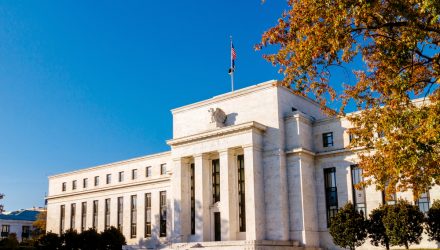U.S. markets and stock exchange traded funds pared gains Tuesday as the Federal Reserve’s interest rate cut failed to divert fears of broad economic weakness in face of a spreading coronavirus.
On Tuesday, the Invesco QQQ Trust (NASDAQ: QQQ) decreased 2.1%, SPDR Dow Jones Industrial Average ETF (NYSEArca: DIA) fell 2.2% and SPDR S&P 500 ETF (NYSEArca: SPY) dropped 2.1%.
The equity market initial jumped on the Fed’s announcement, but stocks gave up the gains after Fed Chair Jerome Powell admitted tp the limits of the monetary policy in a press conference, the Wall Street Journal reports.
“We do recognize the rate cut won’t reduce the rate of infection,” Powell said, though he added the move could “provide a meaningful boost to the economy.”
Many market observers believed that due to the spread of the epidemic and the negative impact on businesses, there was an increasing chance the Fed would have to cut rates before its scheduled mid-March meeting to counteract a potential slowdown in economic growth.
“The market reaction now is negative because the Fed sent the wrong message to the market,” Peter Cardillo, chief market economist at Spartan Capital Securities, told Reuters. “All of a sudden the Fed is really worried about the economy and this is the reason why we are having this volatility.”
Furthermore, many noted that the rate cut won’t immediately affect the economy or provide any more clarity on the impact of the coronavirus on the U.S. economy.
“Fiscal authorities need to be the one that lead the way,” Joseph Brusuelas, chief economist at RSM US LLP, told the WSJ. “Monetary policy is not well positioned to address supply shocks.”
Other global central banks have also exhibited willingness to execute accommodative monetary policies in a bid to obviate a slowdown due to the coronavirus. Finance ministers and central bankers from the Group of Seven countries said they could utilize “all appropriate policy tools” to counter risks from the coronavirus.
For more information on the markets, visit our current affairs category.

